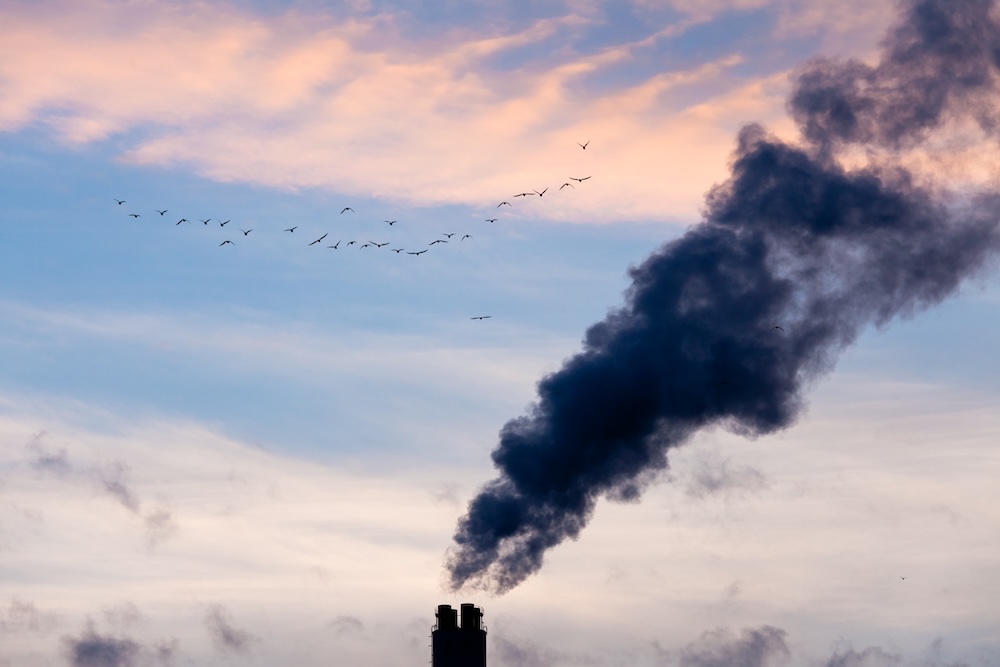Why Air Pollution Matters
Air pollution is not just a local problem; it is a global health and environmental crisis. Every breath we take connects us to the atmosphere, and when that air is contaminated, the consequences are immediate and long-lasting. Polluted air affects human health, ecosystems, the economy, and even climate stability.
Understanding and addressing air pollution is essential because its impacts ripple across all aspects of life: from the well-being of children and communities to the survival of aquatic ecosystems and the resilience of our planet’s climate systems.
The Human Health Toll of Air Pollution
Air pollution is one of the leading environmental risks to human health worldwide.
- Respiratory Illnesses: Pollutants such as particulate matter (PM2.5), nitrogen oxides (NOx), and sulfur dioxide (SO2) are known to trigger asthma, chronic bronchitis, and lung cancer.
- Cardiovascular Impacts: Studies link long-term exposure to air pollution with an increased risk of heart disease, hypertension, and stroke.
- Vulnerable Populations: Children, the elderly, and people with pre-existing conditions are most at risk, as their bodies are less equipped to filter or recover from harmful air pollutants.
- Mental Health: Emerging research also shows a connection between polluted air and cognitive decline, anxiety, and depression.
Financial Burden of Poor Air Quality
The cost of healthcare associated with pollution-related illnesses is staggering. In addition to hospital visits and medications, societies bear indirect costs from lost productivity, absenteeism, and decreased quality of life. According to the World Bank, air pollution costs the global economy trillions of dollars annually, making it one of the most expensive environmental problems in history.
The Environmental Impacts of Air Pollution
Water Contamination
Airborne pollutants don’t stay in the sky — many settle into rivers, lakes, and oceans. When chemicals like mercury, nitrogen, and sulfur deposit into water bodies, they:
- Poison fish and aquatic plants.
- Trigger acidification of lakes and streams, destroying fragile ecosystems.
- Disrupt food webs, impacting both marine life and human food security.
Soil and Ecosystem Damage
Polluted air also impacts soils and forests. Acid rain, caused by sulfur and nitrogen compounds, erodes soil nutrients, damages tree leaves, and stunts growth. Over time, this weakens entire ecosystems and reduces biodiversity.
Contribution to Climate Change
Air pollution and climate change are deeply interconnected.
- Greenhouse gases (CO2, methane, nitrous oxide) trap heat and drive global warming.
- Black carbon (soot) absorbs sunlight, accelerating ice melt in polar regions.
- Short-lived climate pollutants, while not persisting as long as CO2, have intense warming effects, making them urgent targets for reduction.
Solutions to Combat Air Pollution
Air pollution is not inevitable — it is preventable. Solutions require cooperation across governments, industries, and individuals.
Government Regulations
Strong policies are among the most effective tools for cleaner air:
- Emission standards for vehicles and factories.
- Bans on ozone-depleting substances, modeled after the Montreal Protocol.
- Investment in renewable energy to reduce reliance on coal and oil.
- Urban planning that promotes public transit, cycling, and walkability.
Role of Technology
Innovation is accelerating our ability to tackle pollution:
- Catalytic converters reduce toxic emissions from cars.
- Industrial scrubbers capture pollutants from smokestacks.
- Air quality monitoring systems help cities track and reduce hotspots.
- Renewable energy (solar, wind, hydropower) replaces fossil fuel combustion, reducing air pollutants at the source.
Corporate Responsibility
Some companies are leading the way:
- Google is investing in AI-driven tools to map urban air quality in real time.
- IKEA has pledged to become climate positive by 2030, including cutting emissions across its supply chain.
- General Motors and Tesla are pushing forward the transition to electric vehicles, reducing tailpipe emissions that are a major source of urban air pollution.
Financial Support for Clean Air
Banks, foundations, and corporate sustainability programs can fund:
- Research into clean technologies.
- Community projects to improve urban air quality.
- Infrastructure for public transit and EV charging networks.
Financial institutions are increasingly aligning portfolios with green investments, signaling that clean air is not only an environmental priority but also a profitable economic transition.
The Role of Individuals
While systemic change is essential, personal choices also matter:
- Use public transit, cycle, or carpool instead of driving alone.
- Support clean energy by switching to green power providers where possible.
- Reduce energy consumption at home through efficiency upgrades.
- Advocate for stronger air quality standards in your city or country.
Small actions add up when multiplied across millions of households.
The Collective Path to Cleaner Air
Air pollution is one of the greatest threats of our time, but it is also one of the most solvable. The science is clear, the technologies exist, and the economic incentives are growing stronger every year.
By reducing emissions, supporting innovation, enforcing strict regulations, and promoting cleaner lifestyles, we can protect human health, preserve ecosystems, and slow the pace of climate change.
The fight for clean air is not just about protecting our planet — it’s about safeguarding the well-being of generations to come. Every step counts, and the responsibility lies with governments, corporations, and individuals alike.
A world with clean air is possible. The question is not if we can achieve it, but how quickly we are willing to act.









Reader Interactions